Lewis Kim proudly strutted to the podium in a culmination of his research throughout his four years of high school at the European Union Contest for Young Scientists (EUCYS). With his project, “The Future of Carbon Capture Technology: A Novel Moisture Powered Thin-Film Supercapacitor that Absorbs Carbon Dioxide,” Kim won the Swiss Talent Forum award — given to two outstanding participants — along with an invitation to an academic conference in Switzerland.
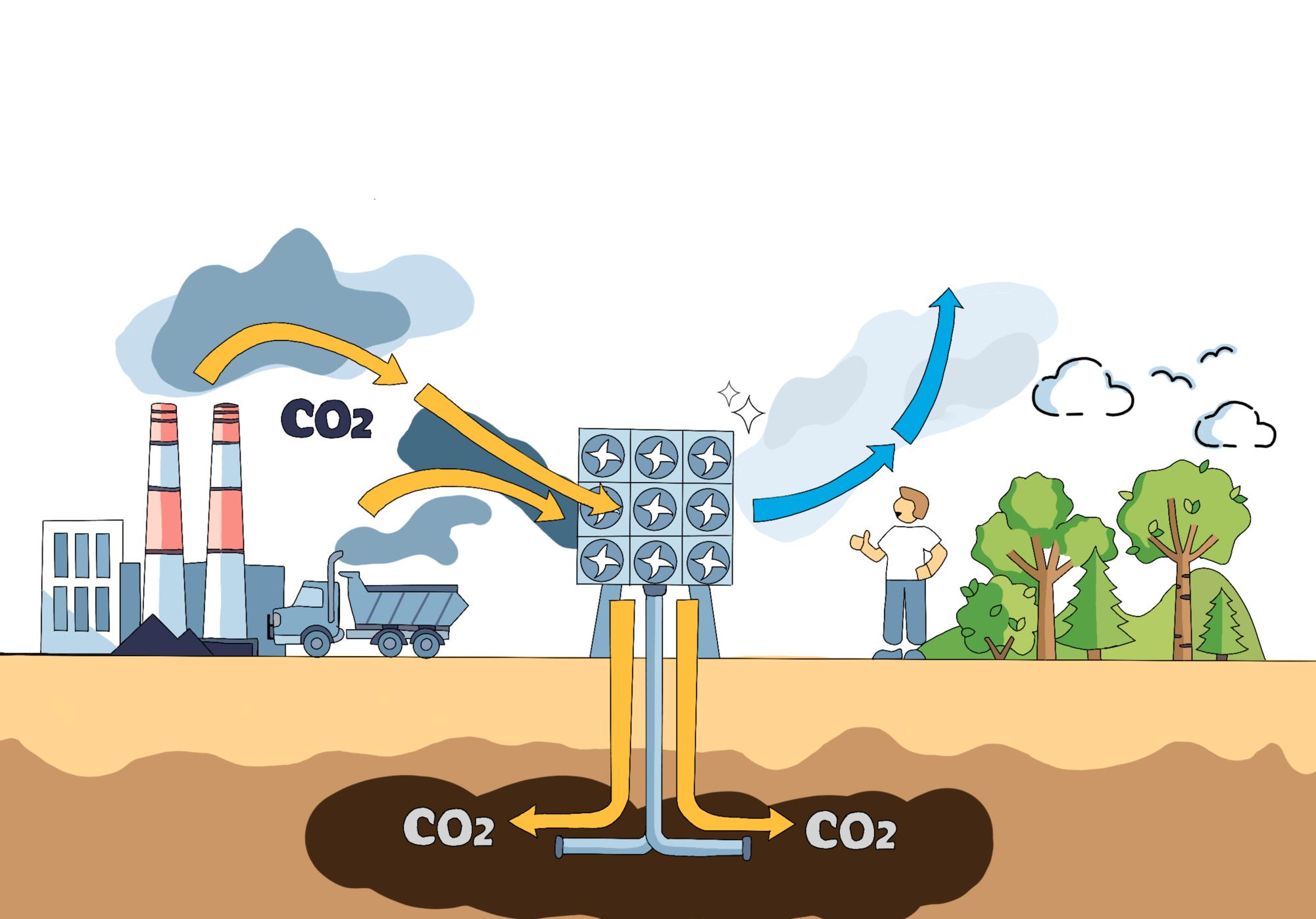
The search for a supercapacitor started by a lucky coincidence. “I actually wanted to do something with public health…like a device…then I met a barrier with batteries, because I needed a flexible battery for such devices. Then, I found a new technology on it, carbon supercapacitors…I thought, why not just make it myself?” Kim said.
Kim embarked on a college-level research project with a mission to develop the first carbon capture technology that generates green energy. However, he soon found himself trapped in endless questions and challenges. The fear of failure often drowned him, even in his everyday life. “Sometimes, I was unable to sleep because I was so busy and stressed. I was unable to eat well or concentrate in classes, and I often felt overwhelmed…as my attempt was something completely unknown, there were always chances of failure—my idea may not work at all, and that could have made my effort meaningless!” Kim said.
While the young scientist worked tirelessly, over a hundred professors rejected his research proposal. “A professor from Kyungpook National University rejected my proposal, but then he recommended someone else. But they also denied me…so I just showed up at the professor’s laboratory, and asked him if I can work there…finally, he said, ‘Okay, let’s try,’ and that’s how I got my proposal accepted,” Kim said.
After a gold medal at the South Korean Athletic Conference STEM fair, Kim came across the Korea Science Engineering Fair (KSEF). “In the past, I didn’t even know that large STEM fairs existed…I saw that Matthew [‘24 DIS alumni] went to the International Science and Engineering Fair (ISEF), and I learned about bigger STEM fairs like the Korea Science and Engineering Fair (KSEF) and EUCYS,” Kim said. With KSEF due in December, Kim pored over his publication hundreds of times and rehearsed his presentation until he could recite it.
On the day of KSEF, Kim entered the venue ready to dominate. However, his judges thought differently. “In the fair, I really felt that my project was authentic and unique…but my judges said that I was missing some parts that they wanted to see…I didn’t have enough presentation time to describe everything, but the judges seemed quite dissatisfied,” Kim said.
In the end, Kim took home a silver medal in KSEF, but he fell short of his goal: gold. “Even though I got the silver award, I felt quite disappointed because I should have gotten the gold medal…because these awards influence the international fairs that I can participate in, I was already at a disadvantage,” Kim said.
Despite this setback, Kim became eligible to participate in EUCYS as a member of Team Korea. “EUCYS is a really prestigious competition, so only gold medalists from KSEF are eligible to participate,” Kim said. “But one of the gold medalists dropped, and because I was the highest-scoring silver medalist, I qualified to participate.” Thankful for the opportunity, Kim refined his presentation with his all.
This September, he traveled to Katowice, Poland for a culmination of a year of arduous research. There, Kim proudly presented himself with passion and confidence. Dr. Lennholm, a judge from EUCYS, said, “I remember having a very informative and valuable discussion with Lewis. He was able to articulate the details of his project very clearly. I certainly think the ideas in Kim’s research could contribute to helping limit climate change.” In the end, Kim received the International Swiss Talent Forum award.
Although Kim did not return with a gold medal around his neck, his research left him with lifelong memories and lessons. “While I was very competitive for awards during the competition, I now realize how much my journey itself has enriched me,” Kim said. “In my group, there were students from Denmark and Ireland, who I had a great time with. I think EUCYS was helpful for me, even without the prizes.”
As Kim described, many students strive and compete for awards, forgetting their true source of enrichment. “Of course all contestants are there hoping to win something, but this is actually the least important part of the contest. The main thing is the contact and the experience of presenting your work…and even more importantly the fun you have with other students,” Lennholm said.
With journeys still ahead of him, Kim optimistically expressed his future goals. “I hope to continue my research and make a contribution to others. I aim to work in public health, such as lengthening human lifetime,” Kim said. “I would definitely recommend this kind of research to my underclassmen. No matter what you win, you’ll be with valuable experiences and lessons that won’t be gained otherwise.”



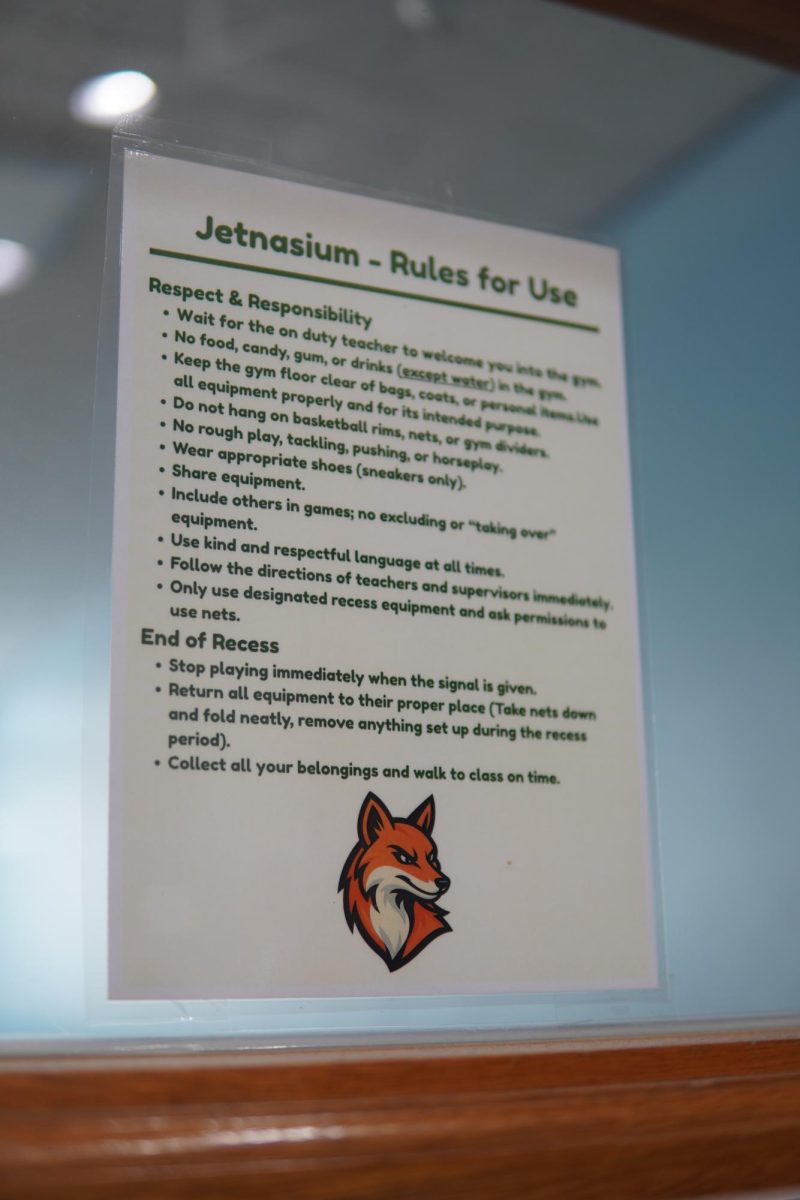
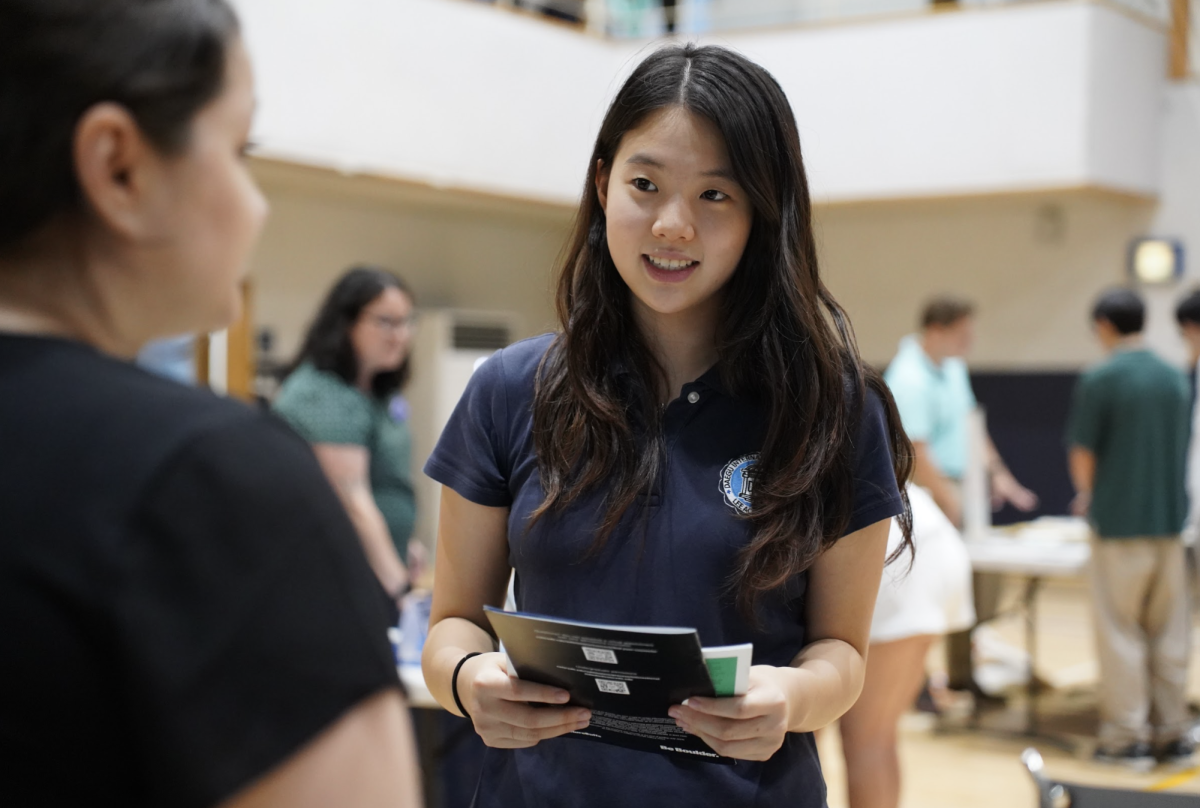
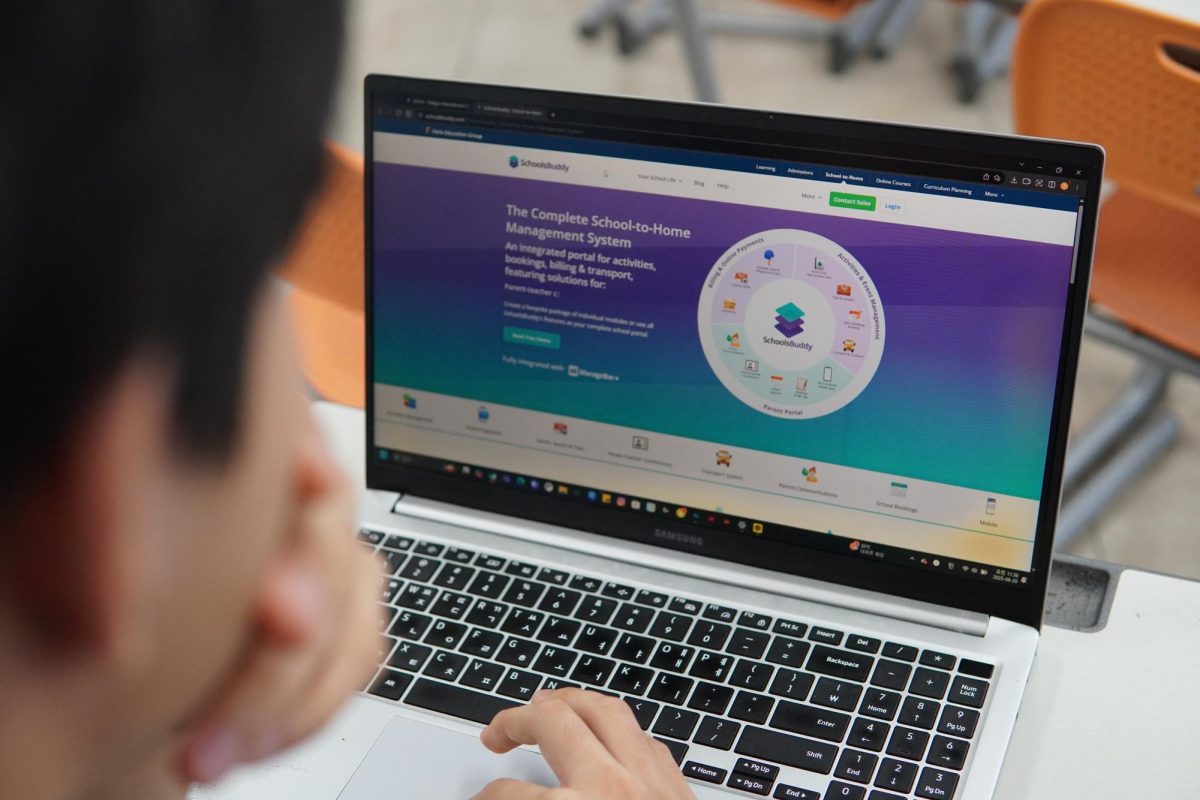
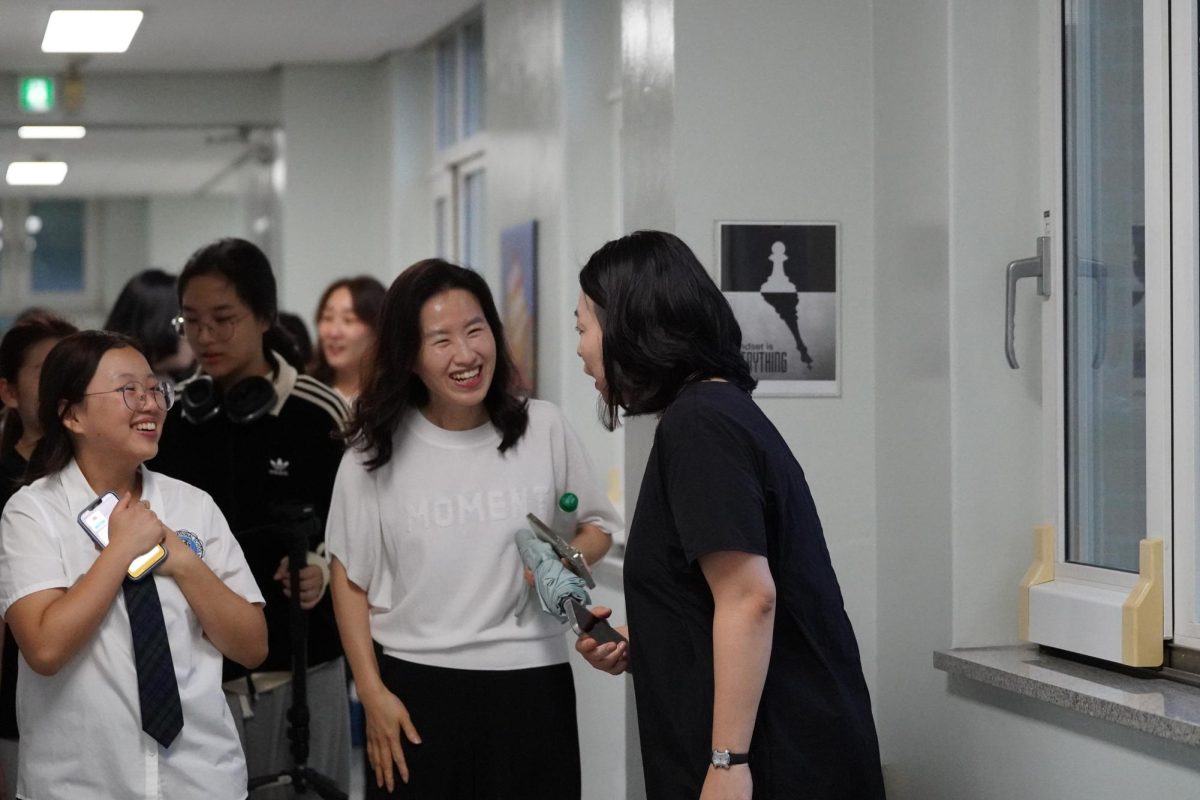







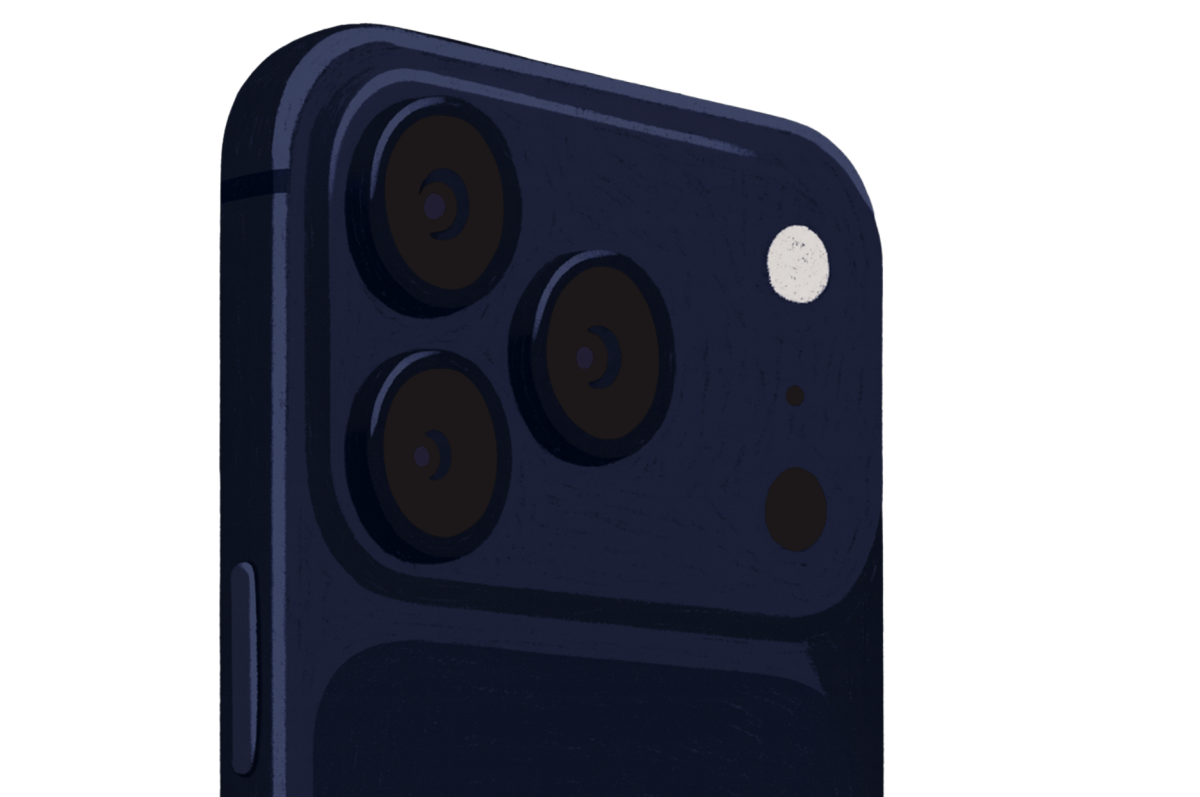
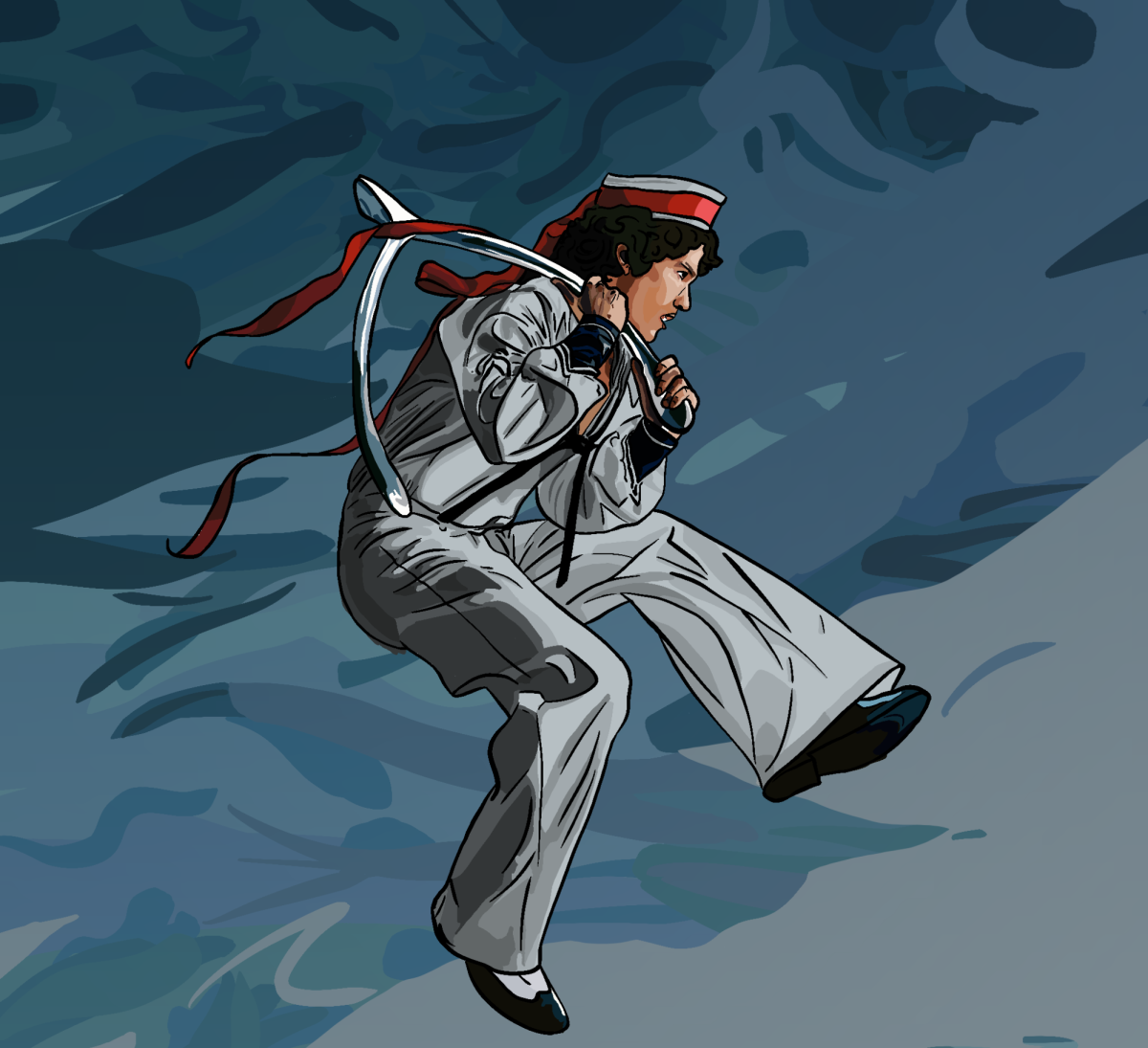
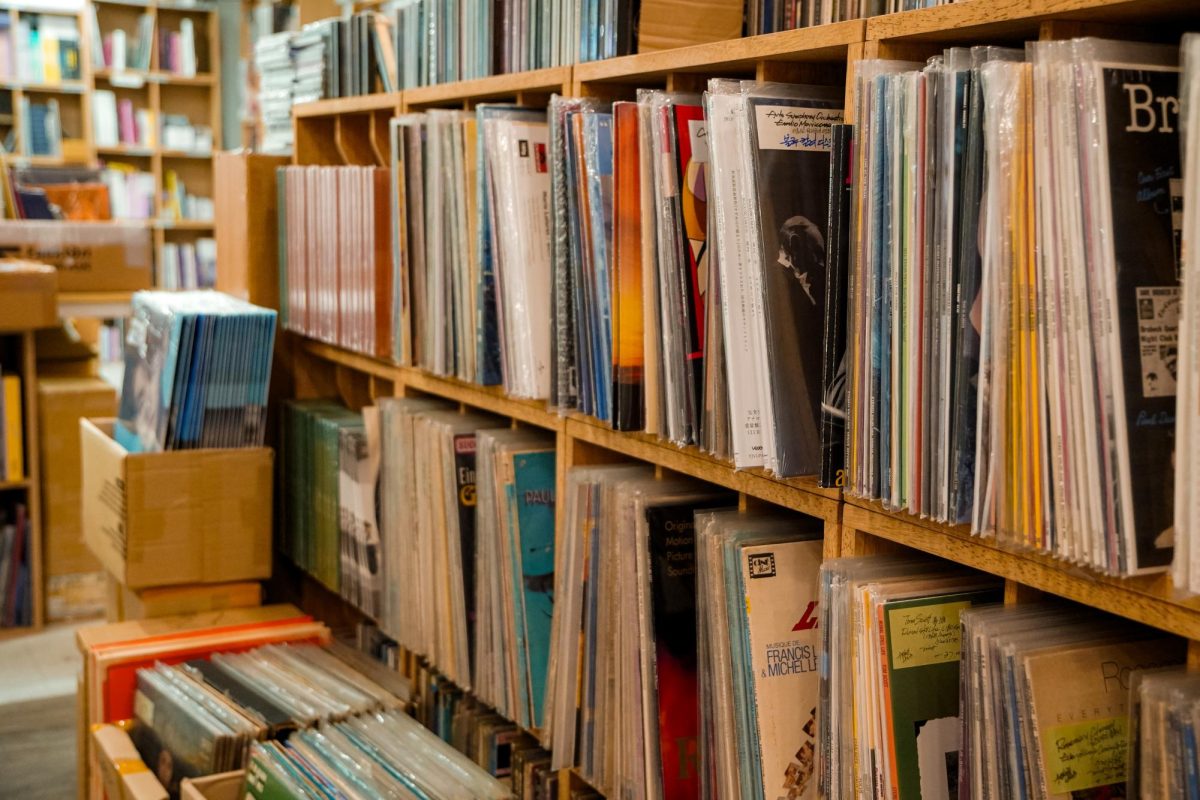
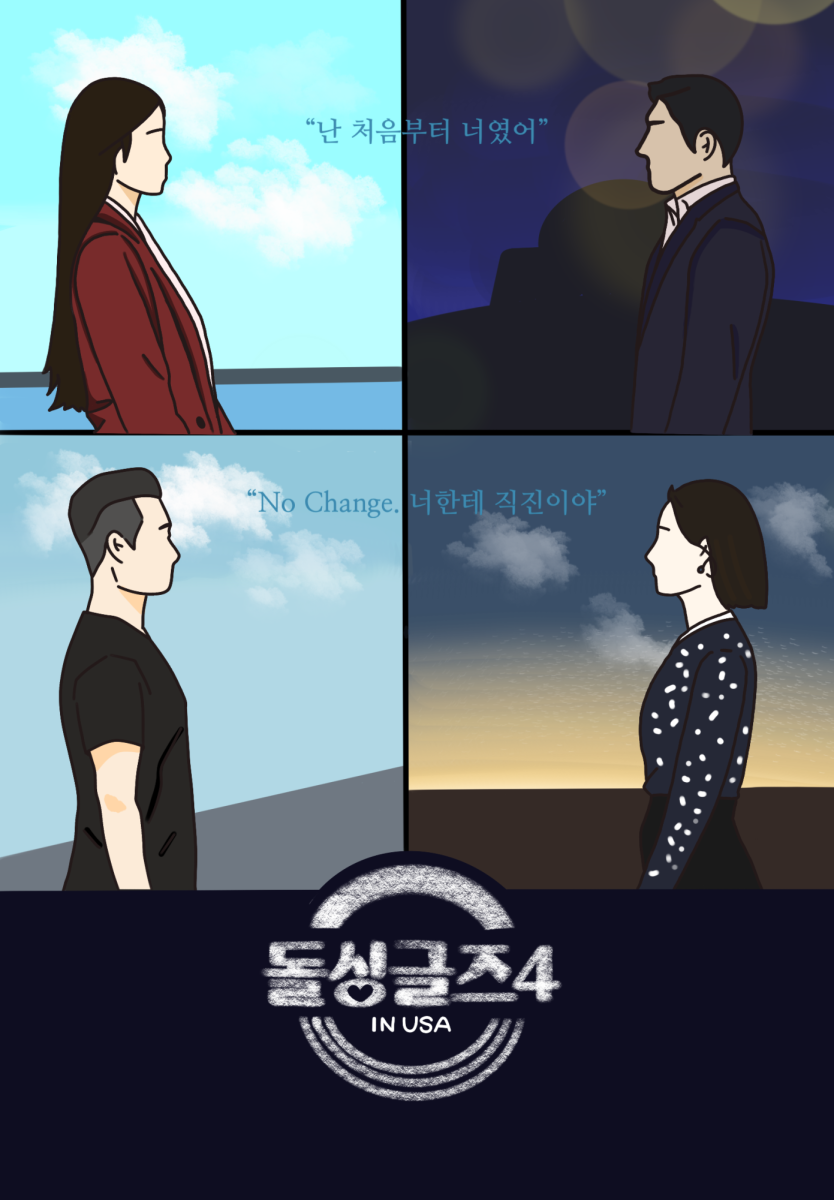






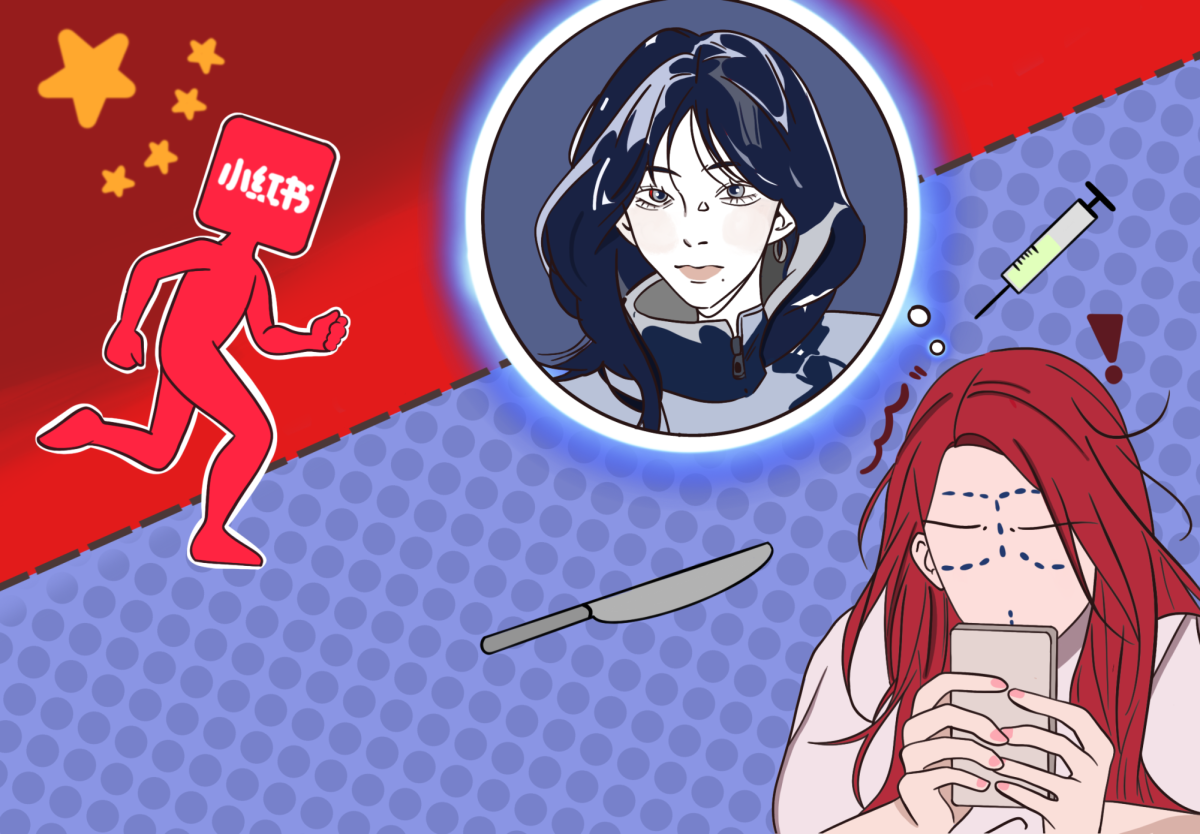








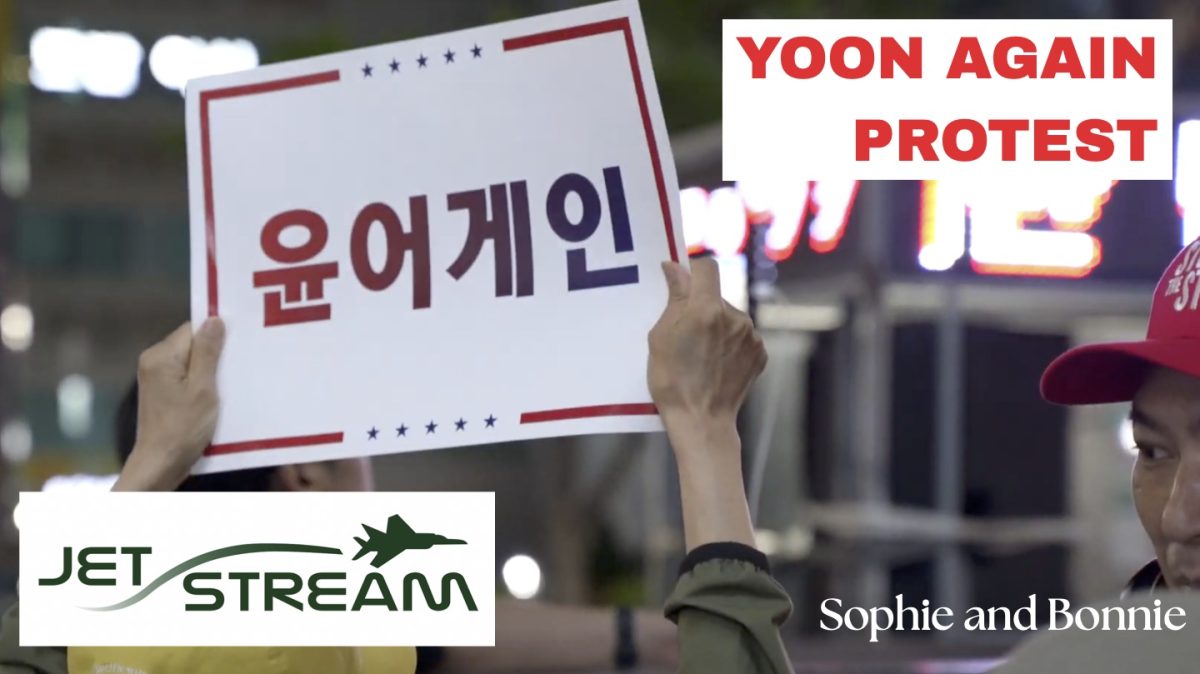




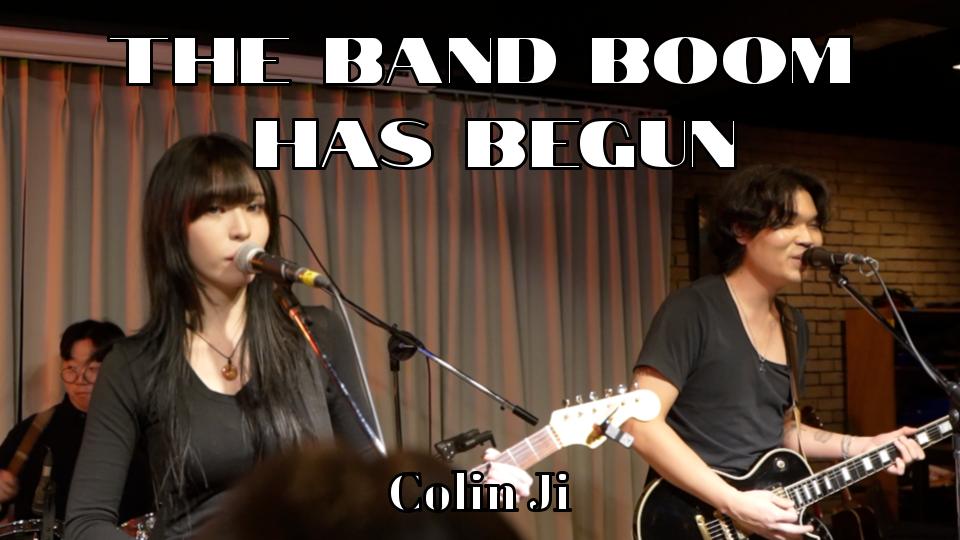
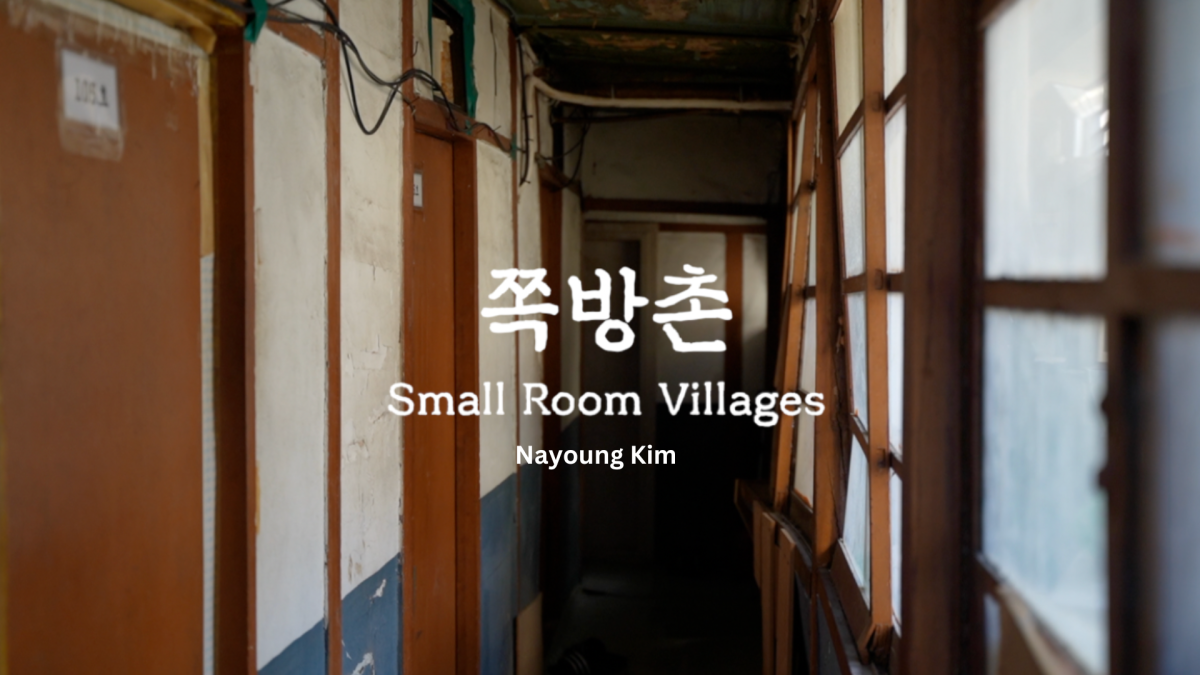






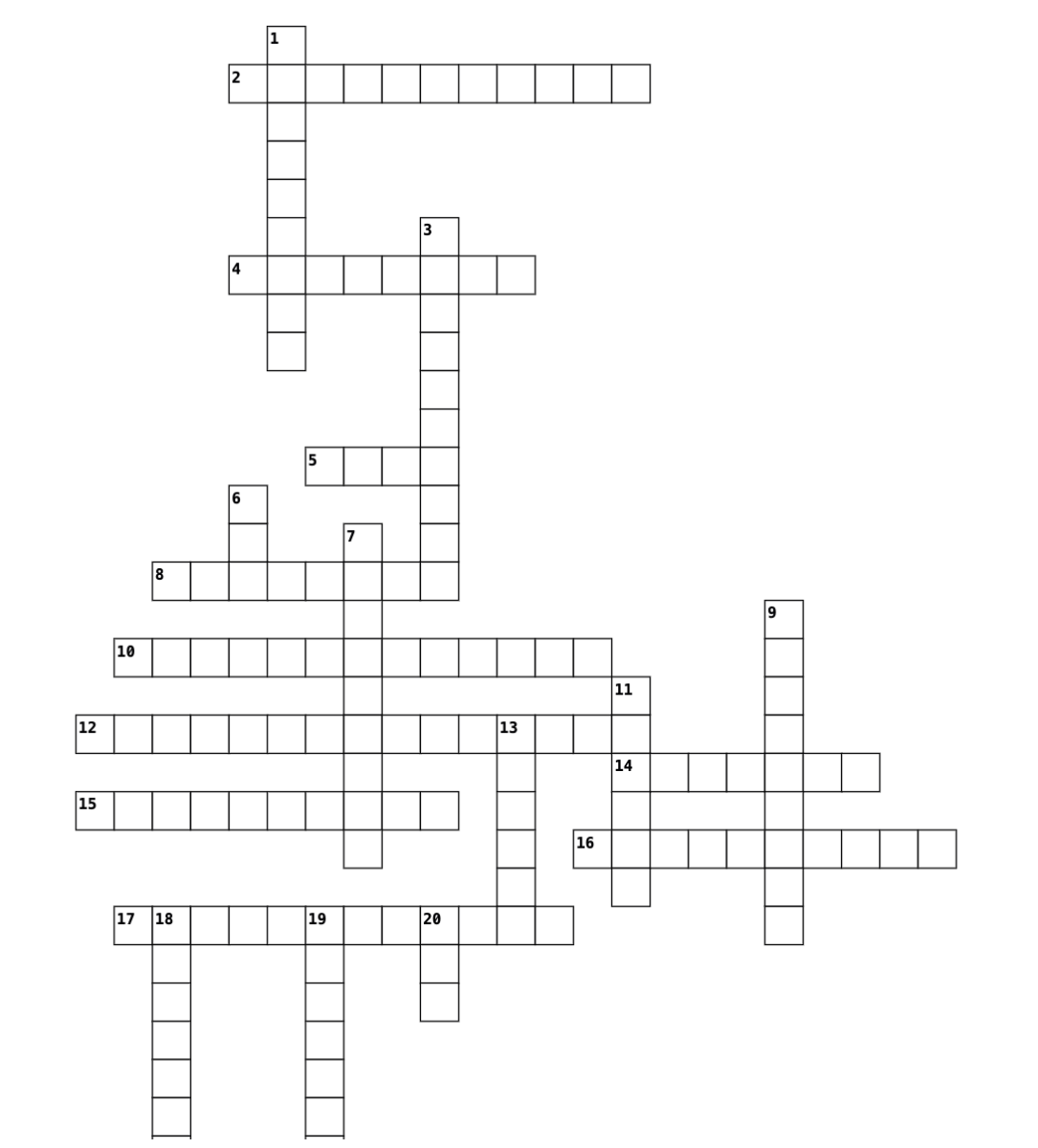
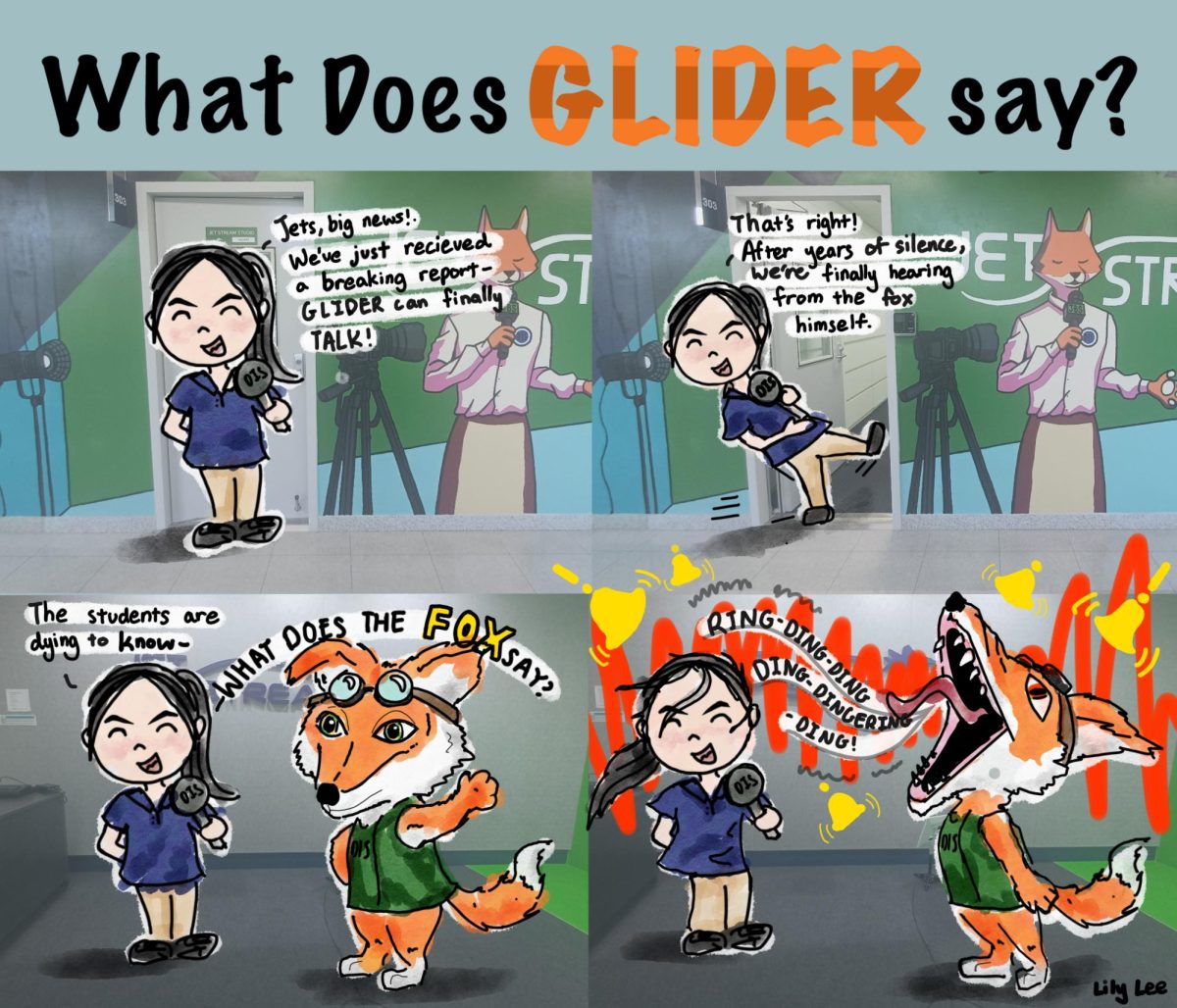
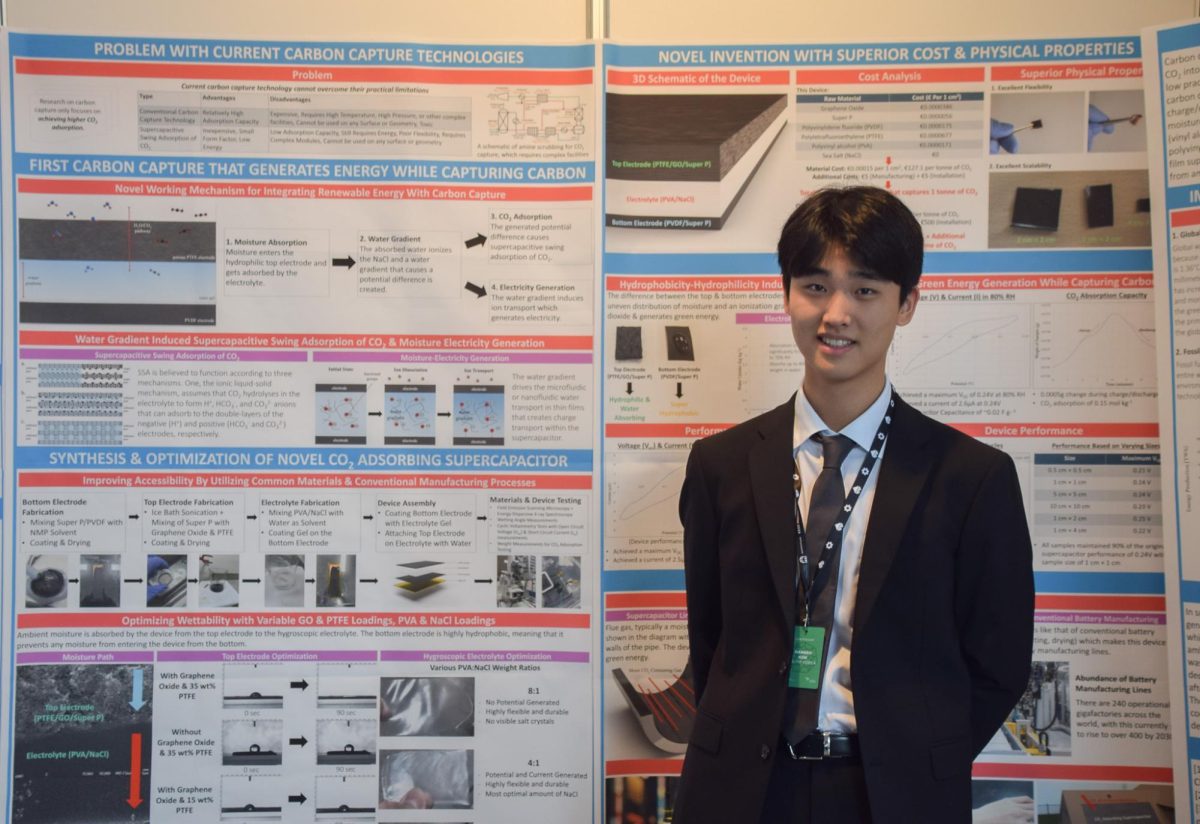
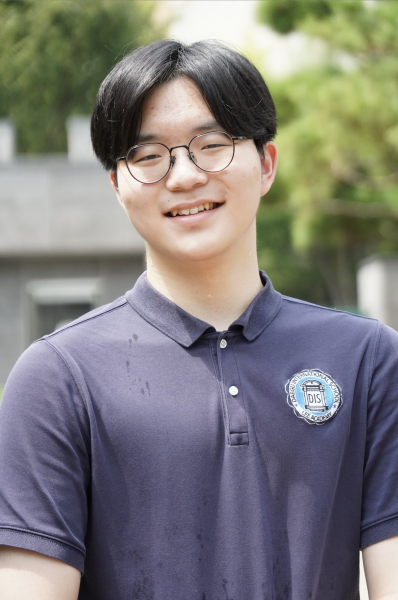
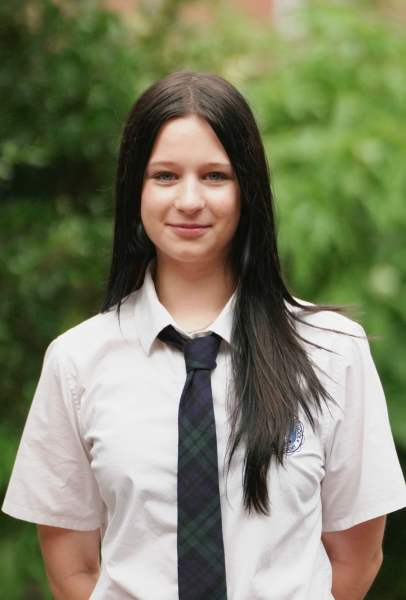
Dylan • Nov 26, 2024 at 6:29 pm
LEWIS IS SO SMARTTTTTT
Steven • Nov 26, 2024 at 6:24 pm
This is so cool!
Sola • Nov 21, 2024 at 8:27 pm
THIS IS SOOO COOOLLLLLLL
Great jobbb Lewisss